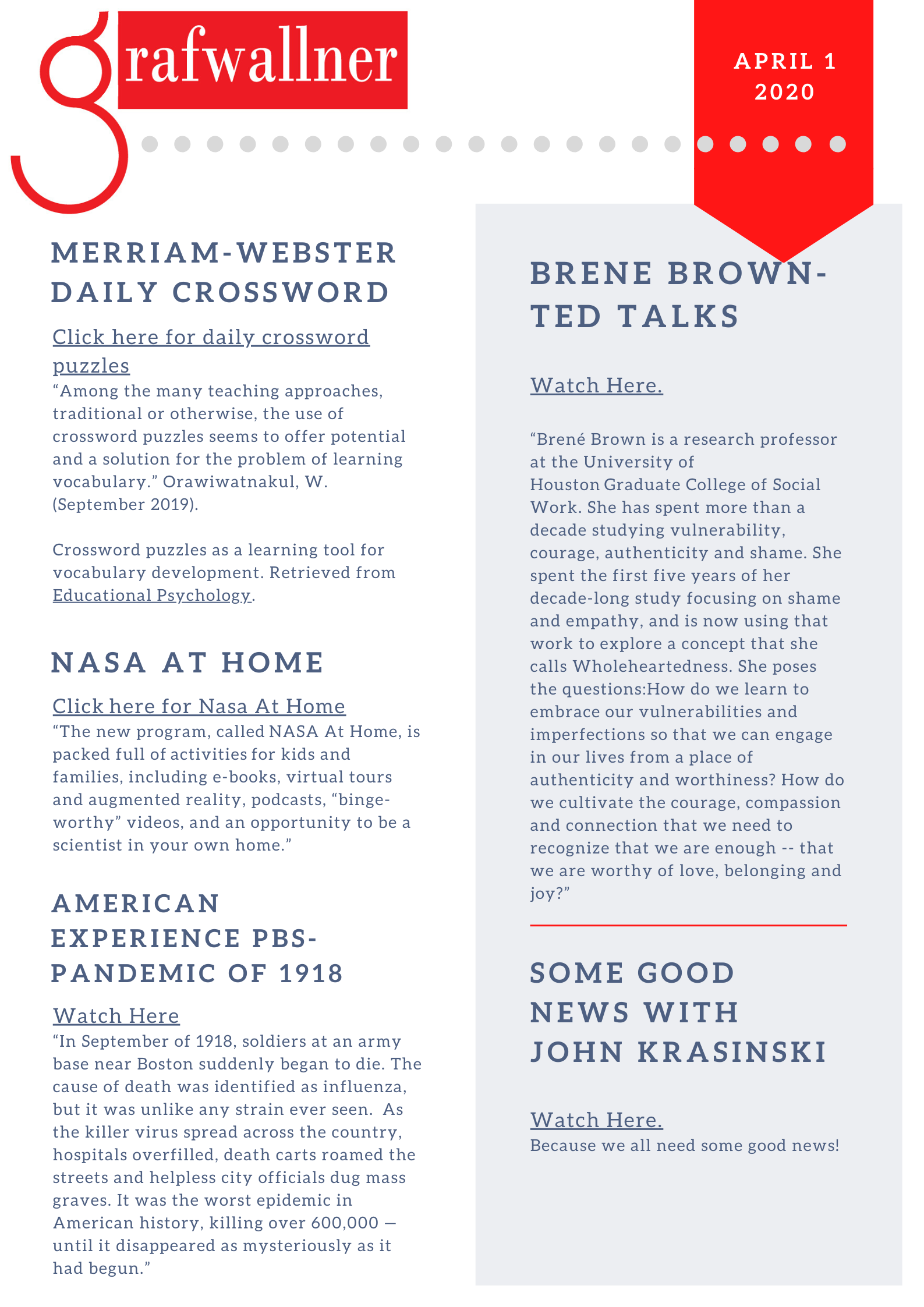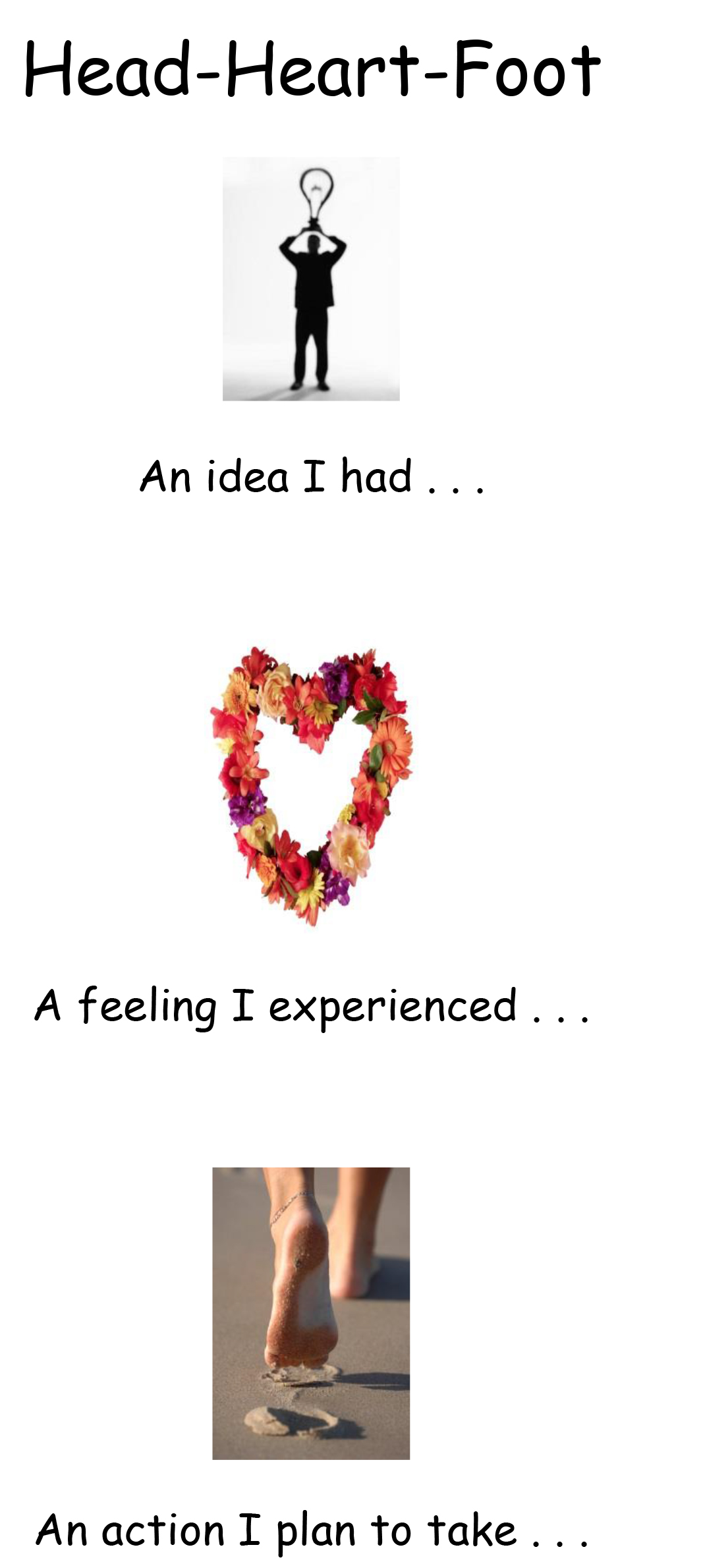Resources: FREE Enrichment Opportunities
Highlights:
Vocabulary
NASA at Home
PBS - American Experience: 1918 Pandemic
Bene Brown TED Talk
John Krasinski: Some Good News
Highlights:
Focabulary (YouTube)
The Benefits of COVID-19
The Detriments of COVID-19
John Krasinski: Some Good News
Inference
Inference is a higher-level critical thinking skill. Asking students to “read between the lines” is a conceptual request, that for some, is difficult to grasp.
Consider using the other skills that students have practiced – annotation, main idea/details, and summary to move toward inference.
Head Heart Action
This quick formative assessment gives students the opportunity to view the lesson in three different ways: mentally, emotionally and physically.
How well do I know these words?
Think of using this vocabulary graphic organizer in pairs as students determine the words they think they know and the ones they actually know. Doing this activity as a pair gives students the opportunity to talk about words and how words benefit their learning.
Question-Answer-Relationship
This iconic strategy created by Dr. Taffy Raphael, offers universal design in its approach to inquiry. There are several ways to utilize the Q-A-R model; ultimately scaffolding based on student need. The "Right There" Questions are found directly in the text. The "Think and Search" are inference-based questions. Finally, the "Author and Me" Questions or "On My Own" Questions encourages students to interact with the text on a personal level.





